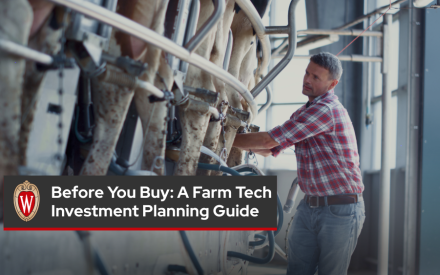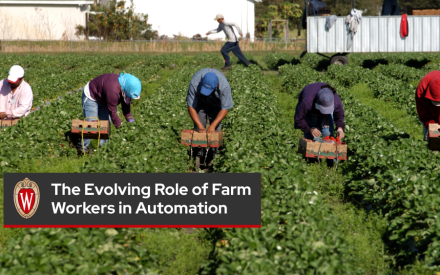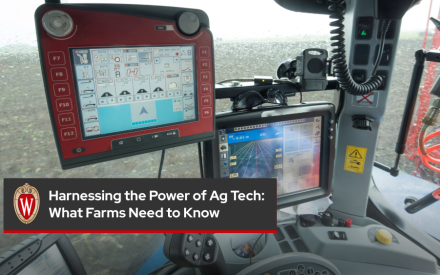A lender’s primary interest is in whether you’re likely to fulfill the requirements of a credit agreement. When a creditor lends you money, he or she does it with the expectation of earning a profit, which is unlikely to happen if there’s a good possibility that you’ll default on the loan. The lender will be more willing to act favorably on your loan request if you can be viewed as someone who’ll make a full and timely repayment.
Ag Loan Evaluation
Because they’re human as well as individuals, lenders vary in their ways of evaluating loan applications. A single lender may use different methods to evaluate different applicants. Some lenders may emphasize personal qualities that were impressive from a face-to-face interview along with opinions from references. Others will strictly follow a list of established guidelines related to income, length of employment, past payments and current debts, and the like. Most lenders, however, take a more intermediate approach, evaluating a loan applicant based on both subjective and objective criteria.
Six C’s of Credit
Lender’s may consider your loan application based on the six C’s of credit:
- Character – Management skills in production, risk management, and financial management; Other attributes, i.e. honesty, commitment, ambitious, integrity, overall ability
- Credit – History and experience obtained from consumer credit report or business report; Analysis of financial statements
- Capacity – Ability to repay debt obligations; Level of risk management, i.e. insurance, forward contracting or hedging, prepaid or early purchases; Other income sources
- Capital – Owner’s equity; Sources of equity, i.e. earned, inherited, inflation; Review equity trend over time
- Conditions – View property; Production reports; Appraisal; Current status of the economy
- Collateral – Assets used to secure loan; Personal guaranty
Ag Lender Info Gathering
There are several pieces of information that you should gather before meeting with your Lender to discuss your loan application.
- Business plans can be written or only thought about and not yet put on paper. Plans should contain background/farm history, strategic plans, goals and objectives, reasons for decisions, timelines, budget projections, and marketing plans.
- Financial Information should be current (within 90 days or fiscal year). You may need to provide a current balance sheet, property tax bills, income statement /tax return, production reports, personal debt (if not listed on balance sheet), and other sources of income.
- Be prepared to answer these questions that your Lender may ask about your farm operation:
- Dairy – Culling rate? Average milk price received?
- Crop – Typical rotation? Crop Insurance?
- Beef – Days to market? Weight sold at?
- How are duties divided up amongst employees/owners?
- Do you have a succession plan?
- Who are the current consultants used?
- Who is your tax preparer/accountant? Insurance provider?
Ag Loan Application Review
The Lender will review your loan application and the information that you have provided. Keep in mind that they need to ask themselves these questions:
- Is the decision right for the lender? What is the farm operators current risk exposure? Will this impact any future loan requests?
- Is the decision right for the borrower? Will this loan application improve the farm operation now or in future? Is the farm operator able to handle additional risk?
Maintaining Rapport with Ag Lender
Once you have established a relationship with a Lender, here are some key steps to maintaining a good rapport.
- Arrange credit in advance – don’t inform your lender of a major decision “after the fact.”
- Allow time for the Lender to make decisions – lender can be a source of sound advice and council when reviewing credit requests.
- Inform Lender of any problems or issues and changes in your business – communication is important not only for your initial request but throughout the whole credit process.
- Maintain your integrity – inaccurate information or failure to honor your
commitments will jeopardize your relationship, as well as harm your credit ratings.
Summary
Low commodity prices and increasing debt levels are placing some farmers in serious financial distress. Accessing credit or capital is one of the many challenges facing farmers. This video discusses how you can work with your lender, starting with learning about the 6 C’s of credit that a lender may consider during your loan application – Character, Credit, Capacity, Capital, Conditions, Collateral – to identifying steps to complete your loan application and establish a relationship with your lender. Agricultural financing can be a crucial tool to continuing production, expanding operations, or trying different enterprises. Through a better understanding of agricultural lending, business planning, and other ways of communicating to a lender, farmers may improve their chances for success.
6 C’s of Credit – Working with your Lender video series, presented by Katie Wantoch, Farm Management Outreach Specialist


 Before You Buy: A Farm Tech Investment Planning Guide
Before You Buy: A Farm Tech Investment Planning Guide Balancing Technology and People: The Evolving Role of Farm Workers in Automation
Balancing Technology and People: The Evolving Role of Farm Workers in Automation  Harnessing the Power of Ag Tech: What Farms Need to Know
Harnessing the Power of Ag Tech: What Farms Need to Know Organic Transition: Purpose, Process, and Resources
Organic Transition: Purpose, Process, and Resources


